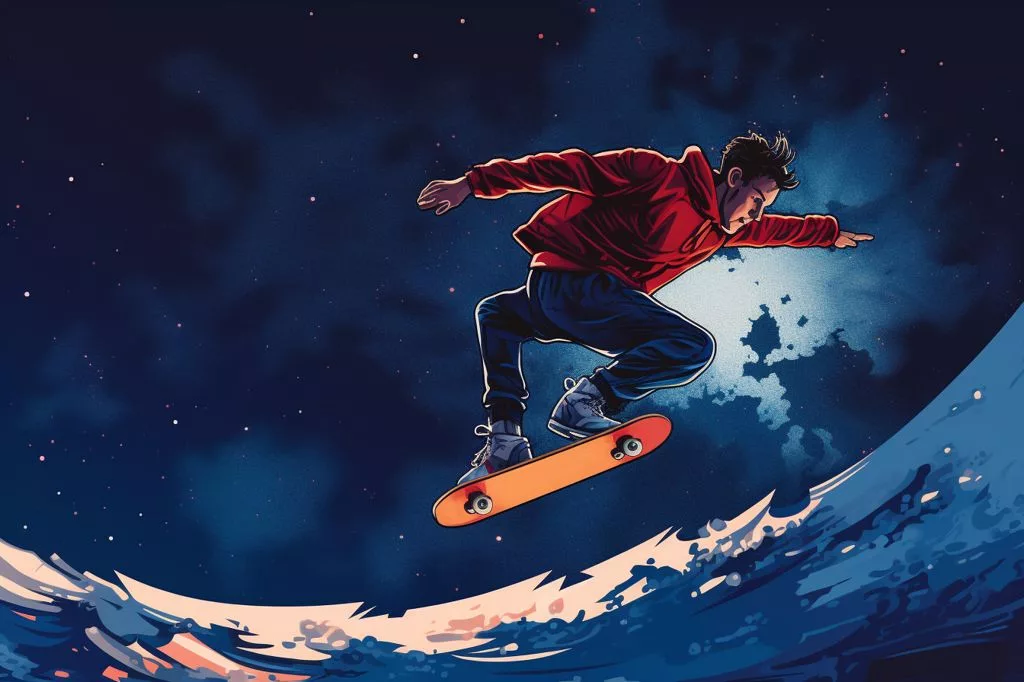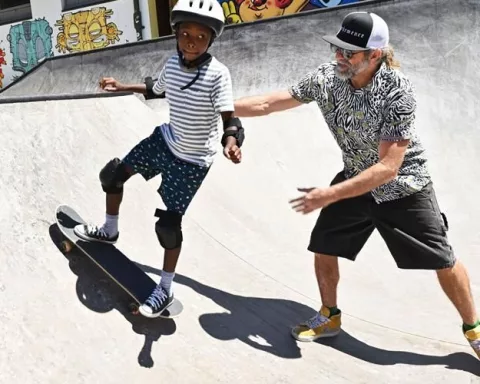Red Bull DIY is a project that refurbishes or constructs skateboarding spaces to promote engagement and inclusivity within the sport. Their latest skate park in Khayelitsha, South Africa, offers a secure location for skateboarders to improve their skills and contribute to the local skateboarding culture. The project aims to create public spaces for skateboarders in areas where there was previously no infrastructure and cultivate a sense of community and belonging through art and sport. The success of the initiative demonstrates the transformative power of collaboration and the potential for growth and diversification within South Africa’s skateboarding community.
What is Red Bull DIY and how is it helping South Africa’s skateboarding community?
Red Bull DIY is a project that constructs or refurbishes skateboarding spaces to promote engagement and inclusivity within the sport. Their recent launch of a skate park in Khayelitsha, South Africa, serves as an example of the transformative power of collaboration and the significance of cultivating a sense of community and belonging through art and sport. The project offers public spaces for skateboarders to enjoy where there was once no infrastructure and aims to contribute to the growth and diversification of South Africa’s skateboarding community.
A New Skate Park Emerges
The skateboarding community in South Africa recently celebrated the launch of Red Bull DIY’s second skate park in Khayelitsha, a township located on the fringes of Cape Town. This follows the triumphant opening of their first park in Pimville, Johannesburg. The latest facility offers a much-needed secure location for Khayelitsha’s skateboarders to refine their skills, add to the local skateboarding culture, and contribute to its expansion.
The Khayelitsha skate park project, a two-year endeavor led by Pieter Retief, a fervent skateboarder and DIY skate park specialist, was realized through a partnership with Red Bull. Retief’s organization, “Where to From Here?”, worked diligently to create distinct and accessible skateboarding spaces in areas that previously lacked them. Now, Khayelitsha’s skateboarders can access a top-of-the-line skate park, free of charge, right in their neighborhood.
The Red Bull DIY initiative strives to rejuvenate local communities by constructing or refurbishing skateboarding spaces that promote engagement and inclusivity within the sport. Retief explains that the main objective is to offer public spaces for skateboarders to enjoy where there was once no infrastructure.
Building Connections with the Local Skate Community
Beyond constructing the skate park, the Red Bull DIY project has also cultivated a robust relationship between Red Bull and Khayelitsha’s local skate community. Members Asakhe Shaun Ditolo, Oluhle Dash Nkebe, Thando Blom, Sandla Majija, Levi Zisiwe, Aviwe Bathandwa, and Chulumanco Chris Diniso have all been integral to the park’s development.
The unveiling of the Khayelitsha skate park garnered the support of 20 local skateboarders, demonstrating the community’s enthusiasm for the initiative. The collaboration between Red Bull DIY and local efforts is transforming the skateboarding landscape in Khayelitsha for the better.
Red Bull is eager to engage further with the skateboarding community in Khayelitsha and the wider Western Cape region. Plans for an even larger skate park are in the works, pending the approval of a designated location, with the goal of enhancing the local skateboarding culture.
The project’s success has piqued the interest of Red Bull, who is reportedly eager to contribute to the growth and diversification of South Africa’s skateboarding community. As collaborations with local skate communities continue, the future appears promising for creating more opportunities and increasing the inclusivity of the sport.
The Transformative Power of Collaboration
The Red Bull DIY initiative’s impact in Khayelitsha serves as an example of the transformative power of collaboration. By partnering with local skateboarders and addressing the community’s needs, Red Bull is not only fostering a thriving skateboarding culture but also revitalizing public spaces that were once overlooked.
In a world where urban landscapes are ever-changing, projects like the Red Bull DIY skate parks act as beacons of hope and creativity. They remind us of the significance of cultivating a sense of community and belonging, as well as the crucial role that art and sport play in helping us connect with one another.
As the day comes to a close in Khayelitsha and the sound of skateboard wheels on concrete reverberates through the crisp air, it’s difficult not to feel inspired by the energy and passion of these young skateboarders. Defying the limitations of their environment, they are carving out a space for themselves and their community, one ollie at a time.
The Red Bull DIY skate park in Khayelitsha stands as a shining example of the transformative potential of art, sport, and collaboration. As more projects like this emerge across South Africa, it’s evident that the country’s skateboarding future is bright and full of opportunities for growth and evolution.
Through the unwavering efforts of local skate communities and organizations like Red Bull DIY, we can undoubtedly anticipate more thrilling developments in South Africa’s skateboarding scene. As the Khayelitsha skate park continues to flourish, it serves as proof of the power of collaboration, creativity, and determination in overcoming adversity.
1. What is Red Bull DIY and what is its mission?
Red Bull DIY is a project that constructs or refurbishes skateboarding spaces to promote engagement and inclusivity within the sport. Its mission is to create public spaces for skateboarders in areas where there was previously no infrastructure and cultivate a sense of community and belonging through art and sport.
2. Where is Red Bull DIY’s latest skate park located?
Red Bull DIY’s latest skate park is located in Khayelitsha, South Africa, a township on the outskirts of Cape Town.
3. How does the Khayelitsha skate park benefit the local skateboarding community?
The Khayelitsha skate park provides a secure location for skateboarders to improve their skills and contribute to the local skateboarding culture. It offers a much-needed public space for skateboarders to enjoy where there was once no infrastructure. Additionally, the project aims to cultivate a sense of community and belonging through art and sport.
4. Who led the two-year endeavor to create the Khayelitsha skate park?
Pieter Retief, a DIY skate park specialist and fervent skateboarder, led the two-year endeavor to create the Khayelitsha skate park through his organization “Where to From Here?” in partnership with Red Bull.
5. What local skateboarders were integral to the development of the Khayelitsha skate park?
Asakhe Shaun Ditolo, Oluhle Dash Nkebe, Thando Blom, Sandla Majija, Levi Zisiwe, Aviwe Bathandwa, and Chulumanco Chris Diniso were all integral to the development of the Khayelitsha skate park.
6. What community support did the Khayelitsha skate park receive?
The unveiling of the Khayelitsha skate park garnered the support of 20 local skateboarders, demonstrating the community’s enthusiasm for the initiative.
7. What future plans does Red Bull DIY have for the skateboarding community in Khayelitsha and the wider Western Cape region?
Red Bull DIY plans to construct an even larger skate park in the Khayelitsha area, pending the approval of a designated location, with the goal of enhancing the local skateboarding culture. They are also eager to engage further with the skateboarding community in the wider Western Cape region.
8. What does the Red Bull DIY initiative’s impact in Khayelitsha demonstrate?
The Red Bull DIY initiative’s impact in Khayelitsha demonstrates the transformative power of collaboration and the importance of cultivating a sense of community and belonging through art and sport. It also highlights the role that skateboarding and public spaces play in revitalizing communities.












